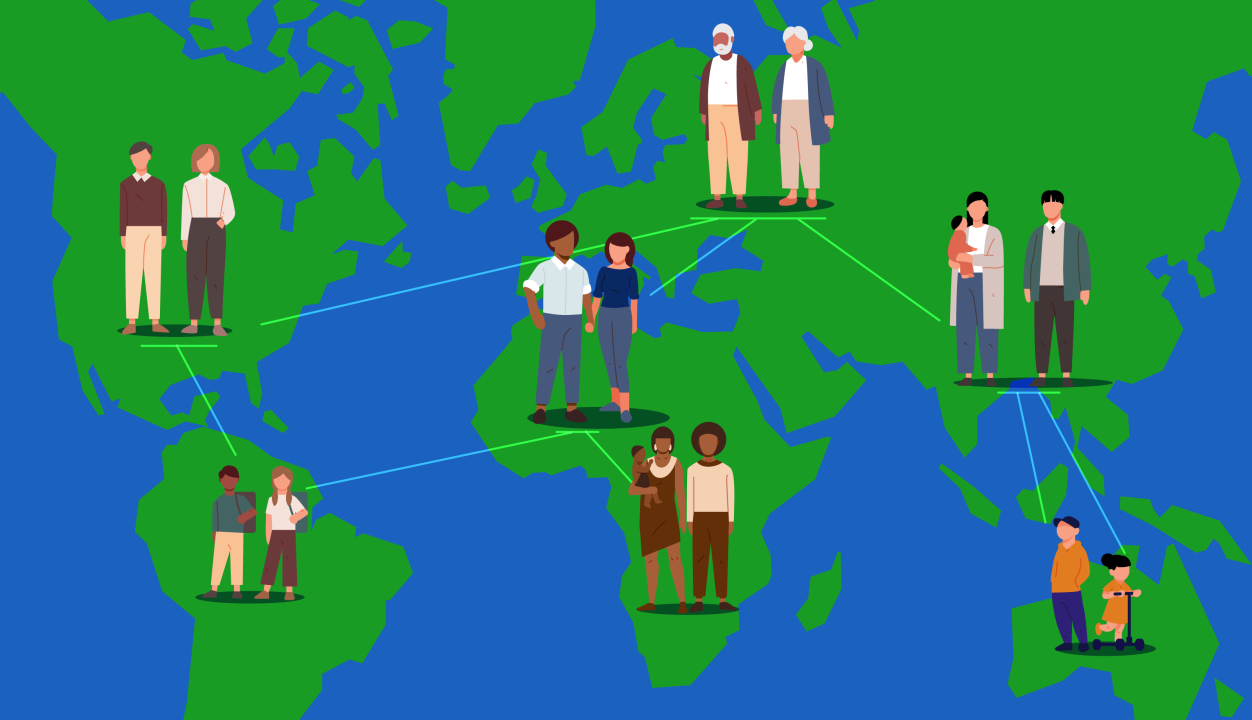The exploration of race through the lens of genetic ancestry presents an intricate tapestry woven with scientific inquiry and cultural discourse. As DNA science continues to unveil the genetic underpinnings of human diversity, it simultaneously provokes questions pertaining to the definition and implications of race in contemporary society. In this analysis, we shall traverse the multifaceted terrain of genetic ancestry, assessing the validity of race as a construct in light of DNA analysis while embracing a framework of cultural relativism.
The Scientific Basis of Genetic Ancestry
At its core, genetic ancestry relies on the analysis of specific markers within an individual’s DNA. These markers can reveal information about an individual’s ethnic origins, migration patterns, and ancestral lineage. Molecular genetics has enabled scientists to uncover the nuances of human variation, dispelling long-held notions that correlate race solely with phenotypic traits. Instead, geneticists emphasize that human beings share approximately 99.9% of their DNA, challenging the notion of race as a rigid biological category.
In undertaking a genetic analysis, researchers often utilize genome-wide association studies (GWAS) to identify particular alleles associated with certain populations. This scientific approach has provided insights into the complexities of ancestries that transcend boundaries traditionally demarcated by race. However, while the genetic markers can elucidate lineage, they remain limited in contextualizing the full spectrum of human experience and identity.
The Sociocultural Construct of Race
Despite the advancements in genetics, race endures as a powerful social construct, deeply embedded within societal frameworks. Anthropologists have repeatedly emphasized that race, rather than being a scientifically definable concept, is a collection of social practices and meanings shaped by historical contexts. The parameters defining race have invariably evolved, often reflecting socio-political dynamics rather than biological realities.
Cultural relativism—an anthropological perspective advocating for the understanding of cultural phenomena within their distinct contexts—provides a crucial lens through which to assess the intersection of race and genetic ancestry. From this viewpoint, one recognizes that the implications ascribed to races are not universal but rather culturally specific. The socio-political ramifications of labeling individuals or communities based on genetic information potentiate issues of discrimination, identity politics, and inequality.
The Limitations of Genetic Ancestry Testing
In recent years, the proliferation of direct-to-consumer genetic testing companies has democratized access to genetic ancestry analysis. These platforms promise users an enlightenment about their heritage through detailed reports delineating ancestry percentages and possible ethnic backgrounds. Yet, there lie inherent limitations in these methodologies. Genetic testing endeavors to spatially delineate human populations, but the outcomes are frequently reductionist, offering simplified narratives that can perpetuate stereotypes.
Further complicating the matter is the variance in interpretation across different cultures. For instance, what is considered a significant ancestral marker in one cultural setting might hold negligible weight in another. Such disparities underline the importance of recognizing the contextual backdrop against which genetic data are interpreted. Moreover, these commercialized services often overlook the ancestral experiences that shape identities in profound ways, rendering the results as merely numerical abstractions void of their human elements.
The Ethical Implications of Genetic Ancestry
The ethical dimensions surrounding the intersection of race and genetic ancestry cannot be sidelined. As society increasingly turns to genetic data to inform personal and communal identities, the ethical ramifications become pressing. Questions of privacy, consent, and the potential misuse of genetic information loom large. The commodification of genetic ancestry risks reinforcing social hierarchies or fueling new forms of discrimination grounded in genetic predispositions.
Moreover, the potential for misinterpretation of genetic data poses a profound concern. While genetic inheritance informs certain predispositions and ancestral ties, it is not determinative of individual capabilities or worth. The reduction of a person’s identity to mere genetic calculations may not only undermine the richness of cultural heritage but also inadvertently propagate a new kind of genetic determinism that contradicts the fundamental principles of cultural relativism.
Revisiting Identity Through a Relativistic Lens
In navigating this complex milieu, it becomes imperative to reconceptualize identity. Rather than allowing genetic data to solely define ethnic or racial identities, individuals and communities should be encouraged to embrace a more holistic understanding. Cultural narratives, shared experiences, and historical contexts are integral to shaping identity, transcending the biological limitations imposed by genetic determinants.
As we interrogate the implications of genetic ancestry on our conceptions of race, it is essential to engage in ongoing dialogues that prioritize inclusivity and respect for diverse cultural perspectives. Cultivating an appreciation for the complexities of human identities aligned with cultural relativism can foster a more nuanced understanding that moves beyond simplistic categorizations tied to DNA.
Conclusion
The interplay between race and genetic ancestry is fraught with complexities that necessitate a thoughtful, interdisciplinary approach. While DNA science holds the promise of illuminating our ancestral pasts, it is the cultural interpretations and societal contexts that shape the meanings derived from such data. By embracing cultural relativism, we can better appreciate the rich tapestry of human existence, recognizing that race, while often invoked in discussions of biology, remains a cultural construct best understood within its specific context. This perspective is crucial for fostering dialogue that emphasizes respect for individual and collective identities in an increasingly interconnected world.
